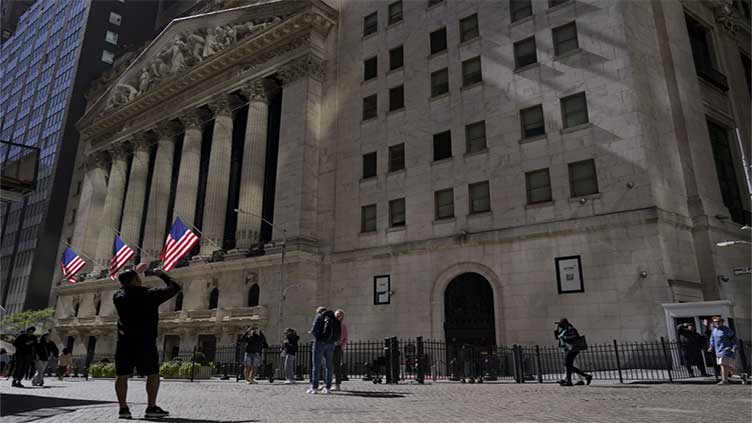Stocks and gold lose some shine after U.S. inflation data

Business
Stocks and gold lose some shine after U.S. inflation data
LONDON (Reuters) - Global stocks and gold lost some of their shine on Tuesday after data showed U.S. inflation cooled as expected in November, but not by enough to add to the belief among investors that rates will fall any faster next year.
U.S. consumer prices rose 3.1% in the 12 months to November, compared with a rise of 3.2% in October, in line with forecasts.
The dollar cut some of the day's losses against a basket of currencies , while gold pared gains and U.S. Treasury yields held steady after the data.
With inflation figures out of the way, investors are now awaiting the outcome of Wednesday's Federal Reserve meeting. The central bank is widely expected to keep rates on hold, with the spotlight squarely on comments from Chair Jerome Powell during his news conference and the central bank's economic projections.
Equities have rattled higher, while bond yields have fallen in recent weeks on the back of growing investor conviction that interest rates are about to fall quite swiftly, as the U.S. economy in particular coasts towards a soft landing.
"Inflation is coasting towards the Fed’s target, but not fast enough for the Fed to talk about rate cuts. Powell will probably say that the job isn’t done yet, but we’re at least closer to the end than we are to the beginning," Brian Jacobsen, Annex Wealth Management chief economist, said.
Markets are now pricing in a 46% chance of a rate cut in March compared with 57% a week ago, according to the CME FedWatch tool. Futures show traders expect at least four quarter-point cuts next year.
FAST AND LOOSE
Financial conditions have loosened since the Fed met in November and that will most likely influence the central bank's thinking, analysts said.
"The Fed will feel that it cannot afford to have financial conditions ease further, as that could potentially re-accelerate labour demand and put renewed upward pressure on the rate of consumer inflation," said Erik Weisman, chief economist and portfolio manager at MFS Investment Management. "Whether the market takes the hint remains to be seen and will likely be driven by the unfolding macro data more than Fed jawboning."
In a busy week for central banks, the European Central Bank, Bank of England, Norges Bank and the Swiss National Bank all meet on Thursday.


